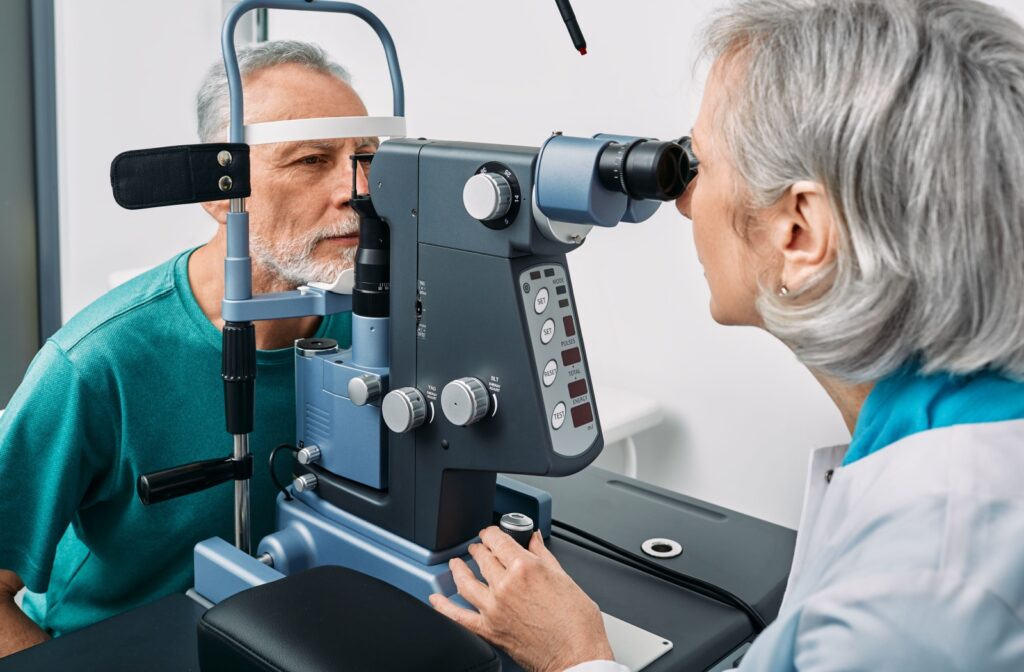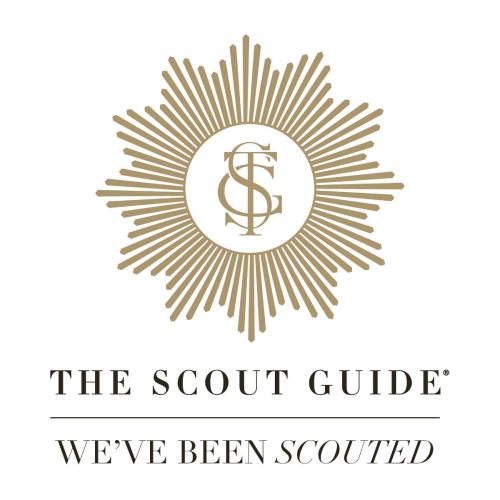Glaucoma is a group of progressive eye conditions that can lead to vision loss and blindness due to damage of the nerve in the back of your eye, called the optic nerve, often due to high pressure in the eye. While vision loss from glaucoma can’t be reversed, symptoms can be managed to help prevent further effects to your eyesight.
The best way to catch early warning signs is through a regular eye exam. Optometrists can detect and diagnose glaucoma by assessing your vision and overall eye health.
Early detection allows for early intervention to help preserve your vision.
Understanding Glaucoma
Glaucoma can be classified into two main types: open-angle glaucoma and angle-closure glaucoma. Understanding these types is vital for early detection and treatment.
Open-Angle Glaucoma
Open-angle glaucoma is the most common type, accounting for the majority of glaucoma cases. It occurs when the drainage angle in the eye, where the cornea and iris meet, becomes less efficient over time. This inefficiency leads to a gradual buildup of fluid, resulting in increased intraocular pressure.
The elevated pressure can cause progressive damage to the optic nerve, which is responsible for transmitting visual information from the eye to the brain. Unfortunately, this type of glaucoma often develops slowly and painlessly, making it difficult for individuals to notice its onset until significant damage has occurred.
Angle-Closure Glaucoma
Angle-closure glaucoma, while less common, can be much more severe and occurs when the iris physically blocks the drainage angle in the eye. This blockage can result in a sudden and dramatic increase in intraocular pressure, leading to acute symptoms such as severe eye pain, headache, nausea, vomiting, and blurred vision.
Because this type of glaucoma can progress rapidly and may lead to permanent vision loss within hours, it requires immediate medical attention. Factors such as age, family history, and certain anatomical features of the eye can increase the risk of developing angle-closure glaucoma.
Symptoms
Glaucoma often has no noticeable symptoms in the early stages, which is why regular eye exams are crucial for early detection. As the condition progresses, individuals may begin to experience a range of symptoms. These can include:
- Loss of peripheral vision
- Tunnel vision
- Blurred vision
- Halos around lights
- Eye pain or discomfort

The Role of Optometrists in Diagnosing Glaucoma
Optometrists play a crucial role in identifying signs of glaucoma in their patients. During a comprehensive eye exam, optometrists will typically perform various tests to assess the pressure in the eye, examine the optic nerve, and check for any vision changes that may be indicative of glaucoma.
Pinnacle Eyecare uses the Goldmann applanation tonometry and the iCare non-contact tonometer to measure your eye pressure
Goldmann Applanation Tonometry
Goldmann applanation tonometry is a common and widely used method to measure intraocular pressure (IOP), which is the fluid pressure inside the eye. Monitoring IOP is crucial in diagnosing and managing glaucoma, a condition that can lead to vision loss if not properly treated.
Goldmann applanation tonometry is considered the gold standard for measuring IOP due to its accuracy and reliability.
iCare Non-Contact Tonometer
The iCare non-contact tonometer is a device used to measure intraocular pressure (IOP) without the need for numbing drops or direct contact with the eye, making it a quick and comfortable option for patients. It’s often used in routine eye exams, glaucoma screenings, and situations where traditional methods, like Goldmann applanation tonometry, may be less suitable.
When Should You See an Optometrist?
It is recommended to have a comprehensive eye exam every 1 to 2 years, especially for those over the age of 40. However, if you experience any changes in your vision or have a family history of glaucoma, it is essential to see an optometrist right away.
Early detection and treatment can help prevent vision loss and manage the condition effectively.
Managing & Treating Glaucoma After Diagnosis
Management and treatment for glaucoma aims to lower intraocular pressure and prevent further damage to the optic nerve. This may include:
- Eye drops to decrease fluid production or increase drainage
- Oral medications to reduce pressure in the eye
- Laser therapy to improve drainage of fluid from the eye
- Surgery to create a new opening for fluid drainage or implant a drainage device
It’s important to follow up with your optometrist regularly and adhere to their recommended treatment plan to manage glaucoma effectively. It’s crucial not to ignore any signs or symptoms of glaucoma. Your eye doctor is here to help protect your eyesight!
Comprehensive Eye Care & Glaucoma Management at Pinnacle Eye Care
Glaucoma is a serious eye condition that requires collaboration between optometrists and ophthalmologists for effective management. If you experience any symptoms or have risk factors for glaucoma, it’s important to schedule regular eye exams to catch and treat the condition early on.
At Pinnacle Eye Care, our team works together to provide comprehensive eye care for all our patients. Contact us today to schedule an appointment and stay on top of your eye health. Remember, early detection and treatment can make all the difference in managing glaucoma. Let us help you preserve your vision and quality of life!






